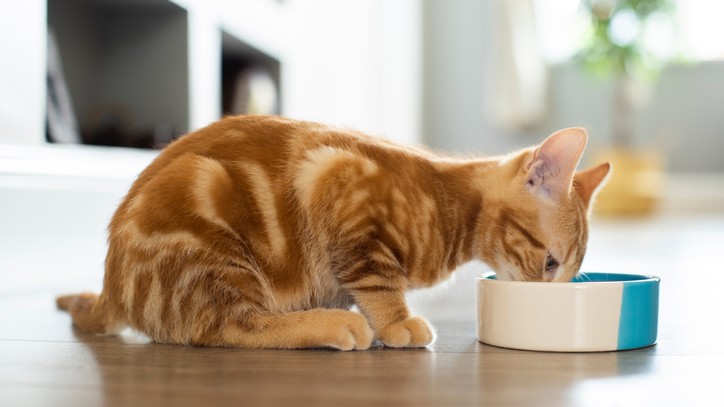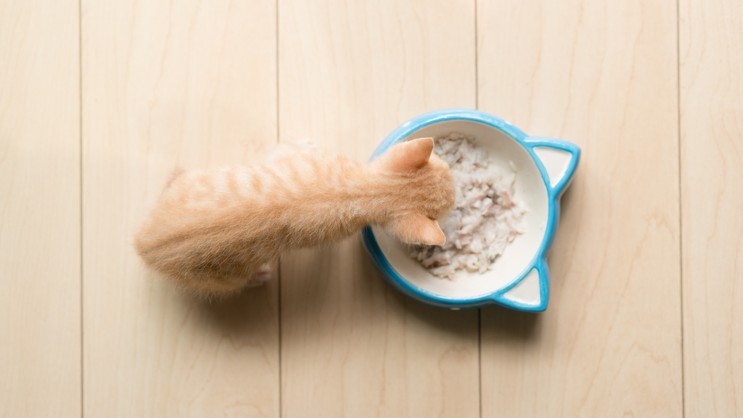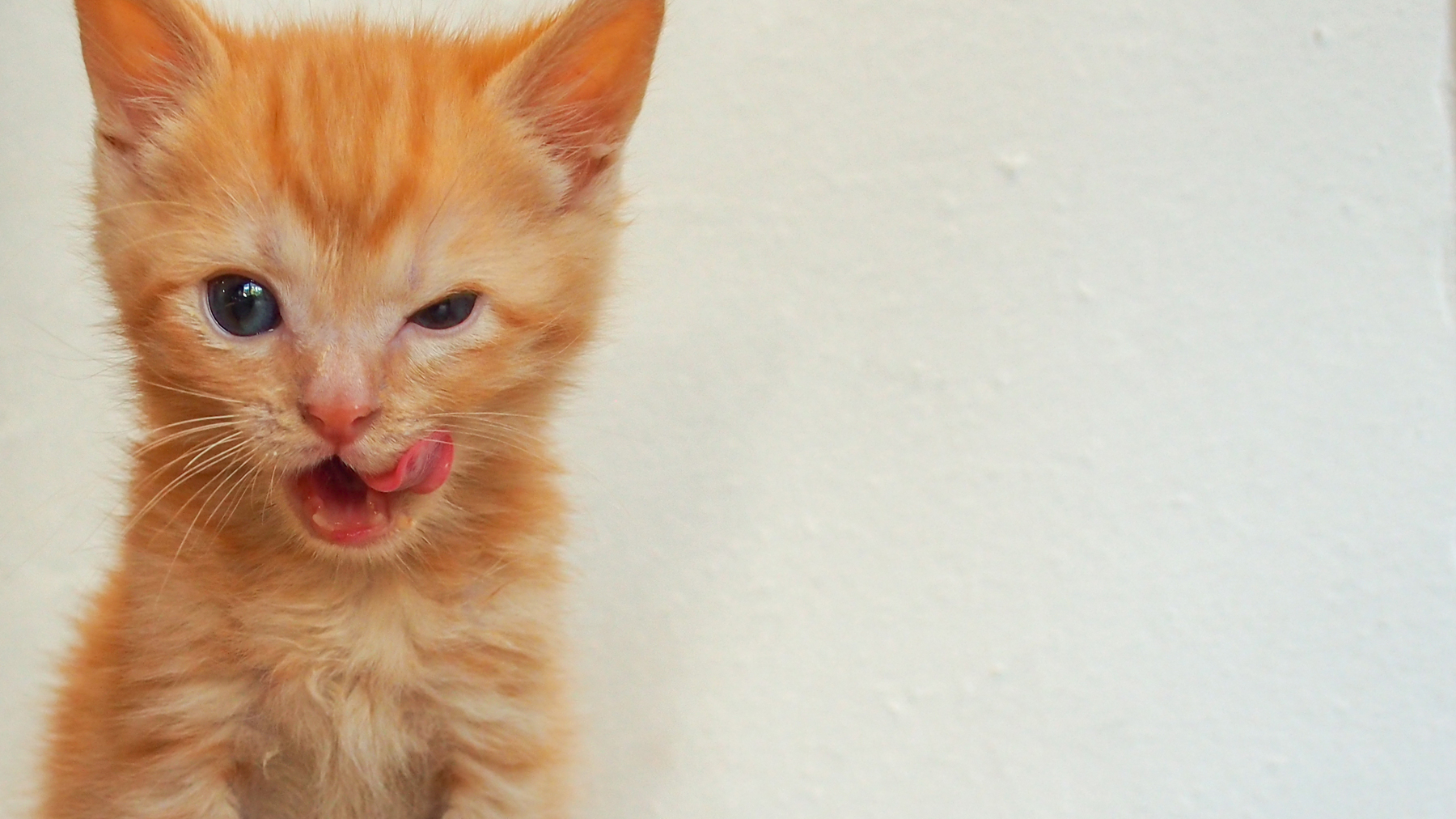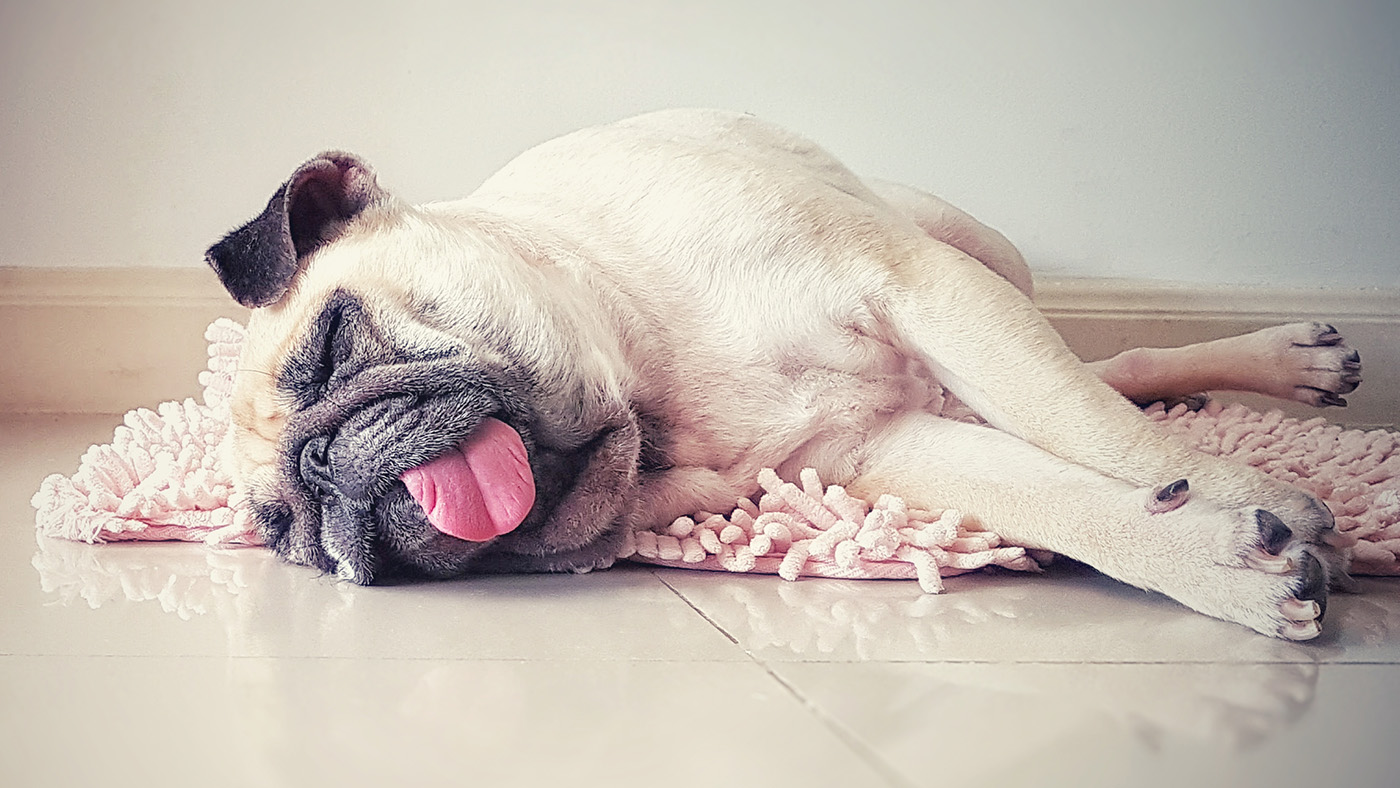When can kittens eat dry food? A vet spills the kibble!
As a new pet parent, you may be wondering ‘when can kittens eat dry food?’ We asked a vet for all the answers

When can kittens eat dry food? It’s a question you may be asking if you’ve recently welcomed a new bundle of fluff into your family. While every kitten is slightly different in terms of how soon they’ll be ready for solid food, there’s certainly plenty of guidance that can assist you in figuring out when they can be safely weaned off their mother’s milk.
It’s unanimously agreed by vets that the only source of food and fluid a kitten should consume up to the age of four weeks is their mother’s milk. After that, you can start to introduce the best kitten food in wet form in small amounts before moving on to dry food a few weeks later.
When it comes to how much food should a kitten eat, it’s important to introduce both wet and dry food slowly. Our youngest fur friends have super sensitive stomachs, so this will help avoid digestive upsets. In terms of portion size, think little and often — four to five small meals spread across the day is ideal.
To help ensure you feed your kitten the right amount of solid food at the right time, vet Dr. Sarah-Jane Mollier shares her expertise below, including how to wean your kitten and what food is best to feed them.

Dr. Diana Hasler, MRCVS is a 2018 graduate of the University of Edinburgh Royal (Dick) School of Veterinary Studies. She has experience working as a small animal veterinarian in first opinion practice, where she has treated many dogs, cats, rabbits, and rodents. She has also recently branched out into the field of medical communications and does freelance work as a medical editor and writer.

Sarah-Jane Molier graduated in 2009 and has been enjoying life as a vet ever since. She currently works as Head Veterinarian in a small animal practice. Sarah-Jane particular enjoys internal medicine, alongside her managerial role. When not working in practice Sarah-Jane enjoys sharing her knowledge and helping pet parents by writing on a wide variety of animal health and medicine topics. In her spare time Sarah-Jane loves walking Nero (her rescue dog), gardening with her two young children and reading.
When do kittens start eating food and drinking water?
For newborn kittens, their mother’s milk should be a kitten’s only source of nutrition from birth until four weeks of age. It’s important that all kittens suckle within two hours of birth, as this is when they receive vital colostrum, the first milk produced by mom. Colostrum provides essential nutrients as well as antibodies, which protect the kitten against diseases until they are able to produce their own.
If a kitten is orphaned or cannot be with its mom, and no foster mom is available, then kitten formula is the next best thing. It’s important to note that kittens should never be given human or puppy formula. This won’t contain the right nutrition for them and can even be harmful. Only kitten formula is suitable.
Kittens can start eating food and drinking water from around four weeks of age. Some kittens may be ready after three weeks, but a kitten should never start weaning before three weeks of age.
Tell-tale signs that a kitten is ready to start weaning include trying to steal some of mom’s food, or biting and chewing on the teat in bottle-fed kittens. The weaning process takes around two to four weeks, with the majority of kittens only eating solid food at eight weeks of age.
When can kittens eat dry food?

Kittens can eat dry food from four weeks old, but it’s sensible to wait until they are five to six weeks old to start offering kibble.
The guide below will help you know what to feed your kitten at each stage of the weaning process.
What to feed kittens to wean them
You can start with wet or dry complete kitten food soaked in water or kitten milk. Starting with wet food is a good idea, as kittens will find this easier to eat and it tends to have a stronger smell, which will entice the kittens.
Kittens must have free access to fresh water at all times during weaning. They will need to stay with mom until they are eight weeks old, so they can supplement feed from her while they get used to eating solid food. Staying with mom during this time is also crucial for their socialization. If they are bottle-fed, you will need to continue with some bottles until they are taking in enough nutrients from the solid food.
How to wean kittens

Here are our top tips for successfully weaning kittens:
- First, be patient. Weaning takes two to four weeks and there will be a LOT of mess in the early stages!
- Once your kittens reach four weeks old, you can start to introduce some solid food. It’s a good idea to start with wet kitten food, mixed with a little warm water or kitten milk.
- You can offer dry food soaked in warm water or kitten milk from four weeks if you choose to. Or, you can add it in starting at five to six weeks.
- You can offer a little food on the tip of your finger or a baby spoon, to tempt the kitten to try it. You should never smear it on their face or force their head into the bowl. They will try it when they are ready.
- Start by offering the food on a flat dish or plate, so there is no lip or rim in the kitten’s way. Be prepared to change the food regularly though, as the kittens will likely walk in it too!
- Over the next two to four weeks you can gradually decrease the amount of water or kitten milk you are adding until they are only eating the solid food.
- Ensure fresh drinking water is easily available at all times.
It’s important that you take your time and don’t try to rush weaning, as this will only cause stress to both the kittens and the mom.
How often to feed your kitten

Wondering how often to feed your kitten? Kittens need to eat little and often, so offer at least four small meals a day initially. It is very rare for kittens to over-eat, so they can also be fed ad-lib, as long as you change the food regularly to keep it fresh.
You should monitor your kitten’s weight daily, to be sure they are getting adequate nutrition. Kittens should gain at least 10 grams per day, on average. If your kitten’s weight gain is less than this or is dropping, contact your vet for advice as a kitten not eating can have huge health ramifications.
Similarly, if their belly looks tucked in, they are crying excessively, or seem cold or weak, you should call your vet straight away.
What's the best type of food for kittens?
Kittens must be weaned on good quality, nutritionally complete kitten food. Kittens have specific calorie, protein, and calcium requirements for healthy growth. They also need adequate vitamins and minerals.
Look for a manufacturer who employs board-certified veterinary nutritionists, or someone with a Ph.D. in animal nutrition, to work on their formula. Consider looking for a brand that is part of the Pet Food Manufacturers Association (PFMA). To be a member, the manufacturers have to meet higher quality standards than the legal minimum. You can find out more in our vet's guide to which kind of kitten food is best for your young cat.
Weaning kittens is such an exciting time, but can also be a challenging one! Successful weaning takes patience, love, and a lot of mess! Now you know how to get started on weaning your kittens. Remember, if you aren’t sure, or have any concerns, then contact your vet for advice. And for more helpful guidance, check out these six kitten care tips to assist you in giving your little one the best start in life.
You might also want to read: Can kittens eat watermelon?
PetsRadar Newsletter
Get the best advice, tips and top tech for your beloved Pets
Sarah-Jane Molier graduated in 2009 and has been enjoying life as a vet ever since. She currently works as Head Veterinarian in a small animal practice. Sarah-Jane particular enjoys internal medicine, alongside her managerial role. When not working in practice Sarah-Jane enjoys sharing her knowledge and helping pet parents by writing on a wide variety of animal health and medicine topics. In her spare time Sarah-Jane loves walking Nero (her rescue dog), gardening with her two young children and reading.
